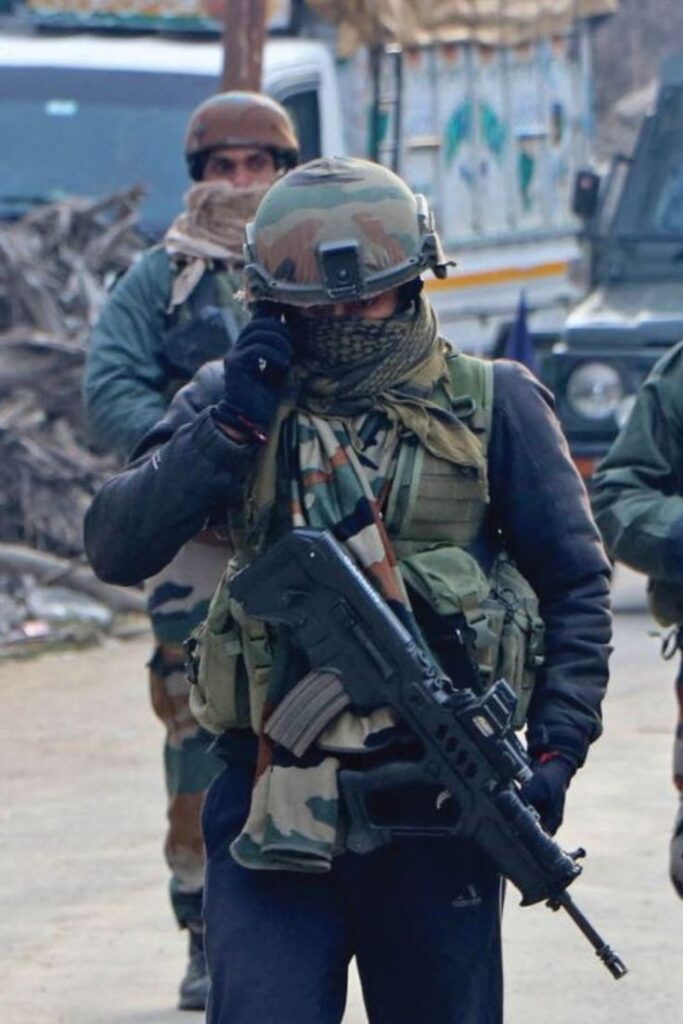Tensions between Indians and Pakistanis over Jammu and Kashmir (J&K) have flared again after Resistance Front terrorists murdered 25 tourists near the picturesque town of Pahalgam last week. The attack is the latest in a long-simmering territorial dispute over the region.
For India, J&K is an integral part of the country, justified by the fact that J&K’s ruler acceded to India in 1947. India wants Pakistan to vacate the areas of J&K that it illegally occupies: namely Azad Jammu and Kashmir, and Gilgit-Baltistan.
Since Kashmiris’ anti-India uprising began in 1989, some 300,000 Indian military and paramilitary personnel have failed to eliminate terrorism from Indian J&K. Indians blame the Pakistan Army’s Inter-Services Intelligence Directorate (formed, incidentally, by an Australian) for training, arming, sending and/or supporting terrorists and their covert, often sophisticated, operations in J&K.
Pakistan either denies India’s claims as “baseless”, asks India to provide concrete evidence of Pakistan’s involvement, or says it is convenient for New Delhi to blame Islamabad for India’s local “organic backlash”. Some Pakistanis even accuse India of undertaking false flag operations: suggesting that India itself orchestrated the Pahalgam incident.
Ever since Muhammad Ali Jinnah founded Pakistan in 1947, the country’s politicians have invoked “plausible deniability” in relation to its covert anti-India activities. In recent years, with an economy close to meltdown and under pressure from the Financial Action Task Force, Pakistan appears more recently to have moderated support for anti-India terrorism.
However, Pakistanis claim to have “incontrovertible proof of Indian-sponsored terrorism in Pakistan”, chiefly in the troubled south-western Balochistan region. While this may be true, it is a longstanding South Asian practice to blame problems on a “foreign hand”.
Despite the common misconception, Pakistan does not actually claim J&K. Rather, it wants a United Nations plebiscite held so that those living in J&K can determine whether their state, in its entirety, will join Pakistan or India. Pakistan expects J&K-ites to choose Pakistan. However, due to Indian – and seemingly global – disinterest in this poll, it is unlikely to ever be held.
Since Kashmiris’ anti-India uprising began in 1989, some 300,000 Indian military and paramilitary personnel have failed to eliminate terrorism from Indian J&K.
India’s intransigence over the plebiscite presents problems for Pakistan, with its lesser military, economic and diplomatic power, and frustrates Islamabad’s ambition for what it craves: the strongly Muslim Kashmir Valley that gives J&K its popular name of Kashmir. In fact, Pakistanis believe the region should have joined Pakistan in 1947, with the “k” in “Pakistan” standing for “Kashmir” in its acrostic form.
Pakistanis also claim that the region, which they argue should be integral to their nation, was secured by India through “fraud and violence”. Last month, General Asim Munir, Pakistan Army chief and arguably the country’s most powerful individual, provocatively stated that Kashmir is Pakistan’s “jugular vein”. This may have been a trigger for the Pahalgam attack, in which all those killed were male and non-Muslim but for one.
Munir’s “jugular vein” reference relates to the significant issue of water. Pakistani irrigators rely on the region’s natural water supply from the Indus, Jhelum and Chenab rivers that flow downstream from Indian J&K and which water is entitled to them by the 1960 Indus Waters Treaty.
Should India ever formally abrogate, rather than suspend, this treaty, and then develop infrastructure to impede water flows on all six Indian-controlled major rivers that flow into Pakistan, then Islamabad would consider the move an “act of war”. Presently, India can only stop data flows and visits by Pakistani hydrologists.
Pakistan’s “tit-for-tat” responses to Indian actions include holding all bilateral agreements with India, including the 1972 Simla Agreement, in abeyance. This negates India’s stance that the Kashmir dispute is a bilateral India-Pakistan issue only, while the heavily militarised Line of Control dividing J&K will no longer be sacrosanct. Pakistan is also currently denying Indian airlines access to Pakistani air space – a costly inconvenience to Indians flying to Central Asia or Europe.
With enmity high, what else can we expect?
More jingoism, vitriol and belligerence from two mutually intractable nations. Despite being geographically contiguous, India and Pakistan are now hermetically distant.
There will be more military exchanges across the Line of Control and almost certainly a “befitting” Indian retaliatory military strike to punish Pakistan. Pakistan’s military will respond. Honour satisfied, hopefully that ends the matter – but it could escalate.
International calls for moderation and further Pakistani attempts to internationalise the Kashmir dispute. Fortuitously for Pakistan, it is currently a non-permanent UN Security Council member (until 2027). However, given many nations’ abhorrence for terrorism and given India’s international clout, support for Pakistan is uncertain.
One nation that might play a significant role is China. Beijing condemned the Pahalgam terrorism, if only because Balochistan separatists keep attacking and killing Chinese citizens working there.
China also has skin in the game – and leverage opportunities: China and Pakistan are “all-weather friends”; the long and disputed China-India border includes heavily militarised Aksai Chin in J&K; waterwise, China is upstream to India on the Brahmaputra River.
Should India-Pakistan relations deteriorate dangerously – which is a real possibility – China could use these levers to pressure or militarily threaten India while, concurrently, being one of the few genuine moderating influences on Pakistan.


